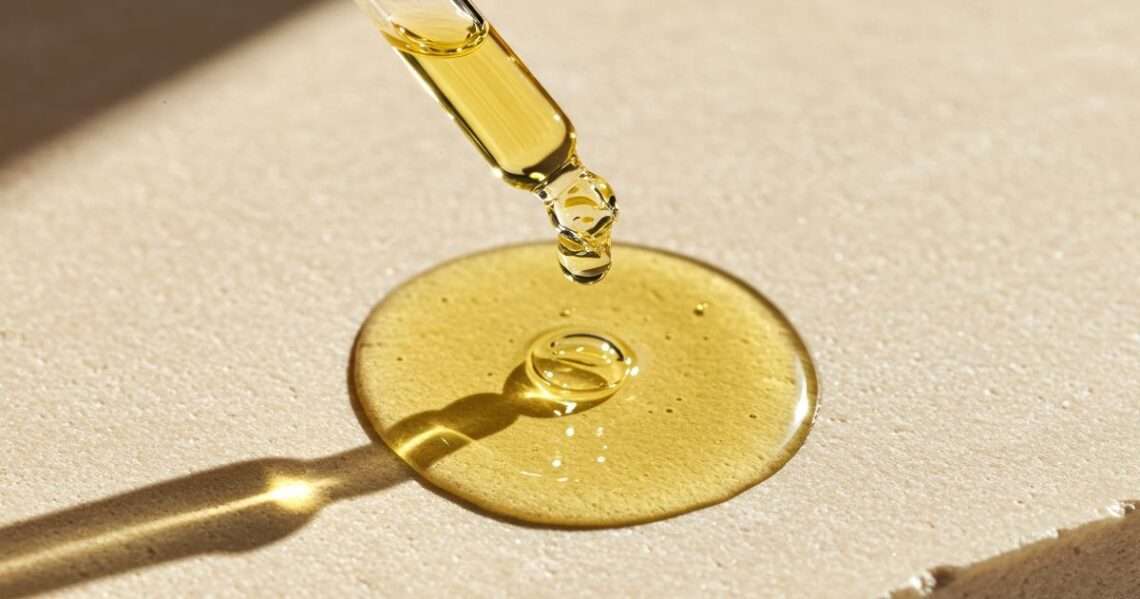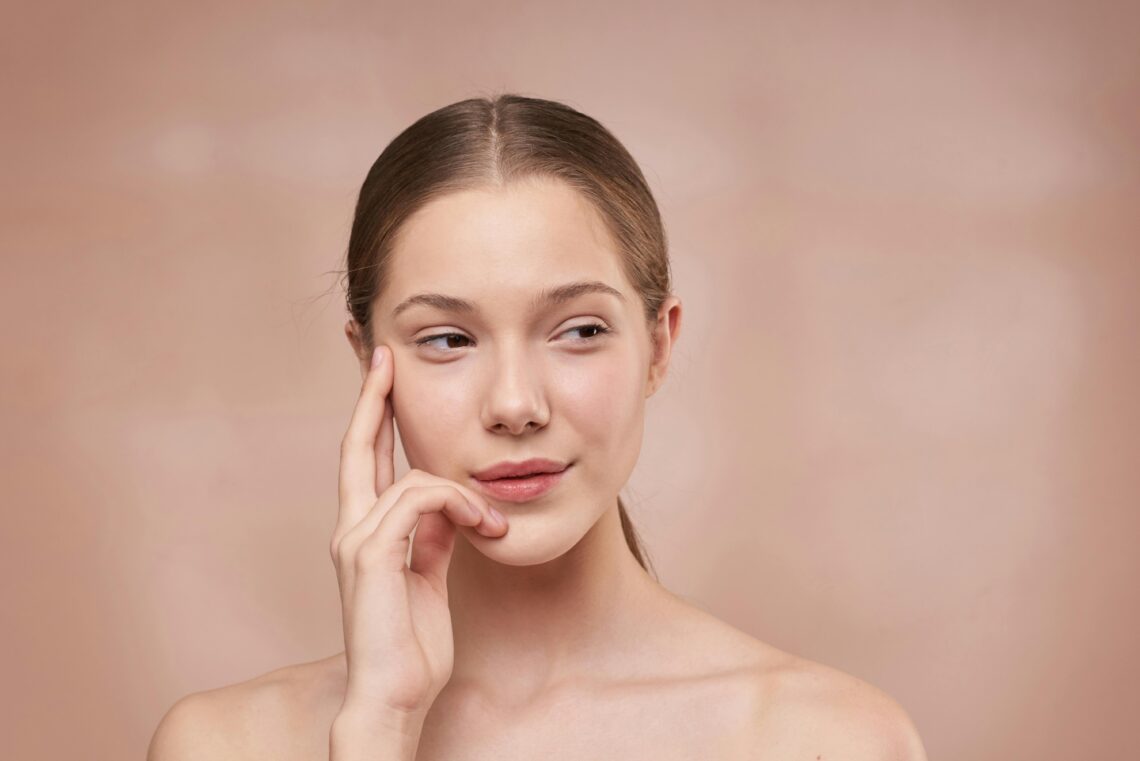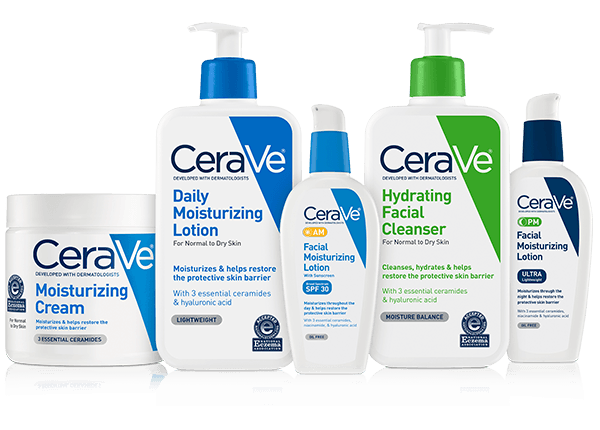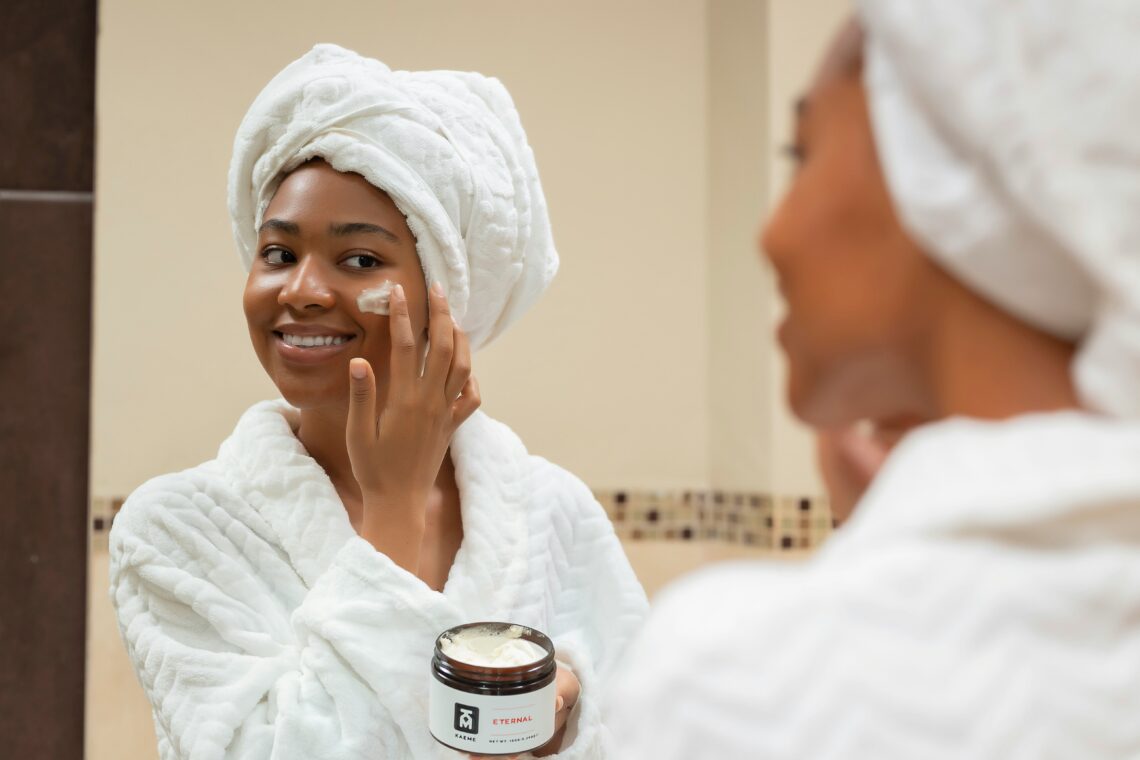Retinol is often hailed as the holy grail of anti-aging skincare — and for good reason. But in recent years, bakuchiol, a plant-based alternative, has been gaining serious attention for offering similar benefits with fewer side effects.
Let’s break down — their differences, benefits, and how to choose the one that works best for your unique needs..
Bakuchiol vs Retinol for Anti-Aging Skincare
Vitamin A-Based Ingredients 101
People think of vitamin A as a single nutrient, but it refers to a group of fat-soluble compounds—retinol, retinal, and retinyl esters. They are commonly used in skincare and often referred to as Vitamin A, as they are among the most effective ingredients in aiming to slow the aging process. However, all 3 are prodrugs that must convert to Retinoic acid in our skin to work. As a result, the fewer the steps of conversion on your skin, the more potent and irritating the ingredient, and it is crucial when it comes to your choice of the ingredient, regarding your skin’s sensitivity, your goals, and your tolerance level.
Retinol, Retina,l, and Retinyl Esters.
| Form | Strength | Irritation | Best for |
| Retinyl Esters | Mild | Low | Beginners, sensitive skin |
| Retinal | Moderate | Medium | General anti-aging, acne |
| Retinol | Strong | Hight | Faster results, experienced users |
What is Retinol?
Those Side Effect Across You Should Mind
Retinol is a derivative of Vitamin A, widely used in skincare to stimulate collagen production, smooth fine lines and wrinkles, and fade pigmentation. Backed by numerous research studies, retinol has demonstrated impressive efficacy in both over-the-counter and prescription-strength formulations. Clinical trials have shown that, when properly formulated and paired with moisturizing agents, retinol can deliver results comparable to tretinoin—also known as all-trans retinoic acid (ATRA)—a prescription medication commonly used to treat acne and photoaged skin.
Although retinol offers remarkable benefits for the skin, dermatologists emphasize that it requires an adjustment period. Starting with a concentration that’s too strong can lead to irritation, including redness, dryness, flaking, burning, and stinging. For beginners, it’s best to apply a thin layer two to three times per week to allow the skin time to build tolerance.
Once your skin adjusts without adverse reactions, you can gradually increase the frequency, eventually reaching nightly use—though a thin layer is typically sufficient for effectiveness.
While current research shows no strong evidence of phototoxicity or photoallergic reactions with retinol, it is still light-sensitive. Sunlight can degrade retinol, reducing its effectiveness. That’s why retinol is best used at night, and it’s essential to wear SPF during the day.
This is especially important for retinol beginners, as the skin may feel more sensitive than usual during the early stages of use. To protect your skin and support its adjustment, avoid direct sun exposure and apply sunscreen daily.
What is Bakuchiol?
Bakuchiol is a plant-based alternative to retinol that has shown similar skin-enhancing benefits in scientific studies. It helps soothe rashes, calm redness, promote wound healing, and stimulate collagen production. Extracted from the seeds of Psoralea corylifolia—a plant long used in traditional Indian Ayurvedic and Chinese medicine—bakuchiol offers many of the same anti-aging effects as retinol, but with fewer side effects such as peeling or burning.
Since bakuchiol is derived from plants, it is almost universally tolerated with very few incidences of irritation. However, sensitive skin may experience similar side effects to retinol. In addition to wearing SPF to prevent sun irritation, applying moisturizer before bakuchiol can help reduce potential irritation.
Bakuchiol vs Retinol:
How to Use Each Ingredient in Your Anti-Aging Skincare Routine
Tips 1: Patch Test first before applying it
Patch testing helps identify potential allergic reactions, especially when using active or irritating ingredients. Apply a pea-sized amount to areas like the inner arm or elbow crease. Leave it on for the same amount of time you’d use the product on your face. For example, a cleanser should keep it on for 5-10 minutes; or retinol or bakuchiol, test twice daily for 7–10 days to gauge your skin’s response.
Tips 2: 2-3 times a week in the beginning to build the tolerance of the skin
Both retinol and Bakuchiol have the potential possibility of causing skin irritations, hence the adjustment period to build skin tolerance is key. Over time, as your skin builds tolerance, you can gradually increase the frequency to 3–5 times a week.
Tips 3: Never Forget about Hydration or Moisturization
Using Bakuchiol and Retinol together can boost anti-aging results, but also increases the need for hydration. Well-hydrated skin absorbs actives more effectively and is better able to tolerate them, reducing irritation, redness, and flaking.
Bakuchiol vs Retinol for Anti-Aging Skincare: How to Choose the Right One for Your Skin
Retinol and Bakuchiol both work on mature and aging skin. Retinol is one of the most researched ingredients in skincare. Therefore, for those who can tolerate it, I recommend using retinol. If your skin appears flaky, sensitive, or red, it could be that the concentration you are using is too high or too frequent. If this is the case, opting for a lower dose of retinol, cutting back the frequency, or choosing bakuchiol instead would be suggested.
People with extremely sensitive skin or prone to irritated skin should opt for the relative safety of bakuchiol. Bakuchiol’s antibacterial and anti-inflammatory properties are good for acne or oily skin to prevent breakouts and ideal for sensitive skin to reduce irritation. Furthermore, for people suffering from rosacea, perioral dermatitis, or eczema, bakuchiol can be an ideal option.
Editors’ Picks: Best Bakuchiol or Retinol Product Dermatologists Suggest
If you have normal skin and are looking for effective results, Paula’s Choice and Murad are your top go-to brands.
For All Skin Type:
Paula’s Choice: Clinical 1% Retinol Treatment
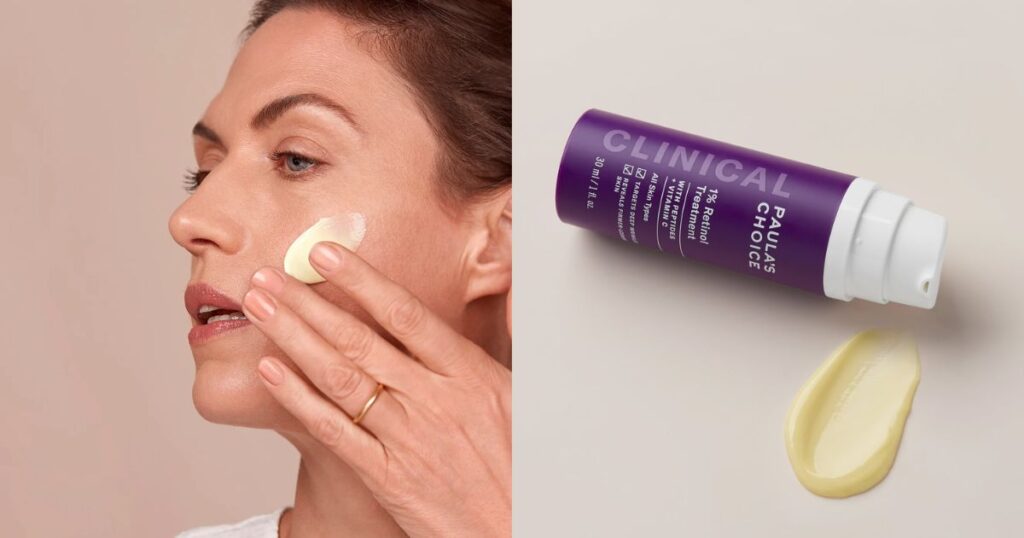
This lightweight lotion combines pure retinol with potent antioxidants to immediately enhance hydration, diminish the appearance of fine lines and wrinkles and promote a more even-toned complexion: licorice, oat extract and other soothing ingredients to help calm redness
Murad Retinol: Youth Renewal Night Cream
Dr Skincare approves!! The Murad Retinol Youth Renewal Night Cream is a corrective retinol cream for all ages and all skin types.
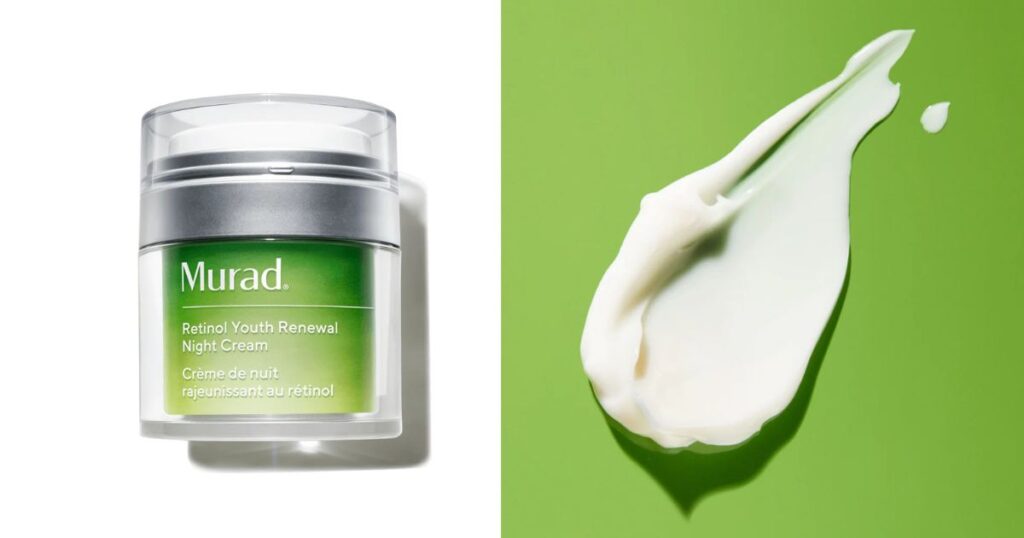
According to an in-house study by Murad:
After 4 weeks of using Retinol Youth Renewal Night Cream:
•97% noticed more hydrated skin
•93% noticed a smoother skin texture
•86% saw firmer and more revitalized skin
This lightweight overnight cream rejuvenates tired, dull skin with retinoids, retinol, Swertia flower, and peptide-rich red algae.
For sensitive Skin with effectiveness:
La Roche Posay: Retinol B3 Serum – 0.3% Retinol
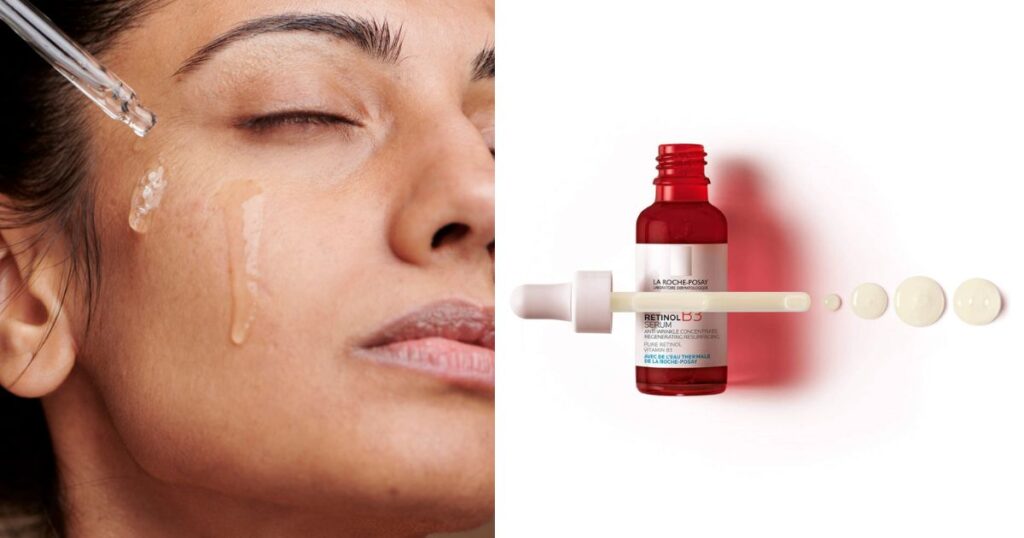
La Roche-Posay Retinol B3 Anti-Ageing Serum is specifically formulated for those concerned with dehydration, uneven skin tone, and wrinkles—while still needing something gentle. Enriched with vitamin B3, it leaves the skin smoother, more hydrated, and noticeably dewier, making it ideal for sensitive skin.
Mature Skin for instant nourishment to restore a radiant glow
Dr Dennis Gross Skincare: Ferulic/Retinol Wrinkle Recovery Peel
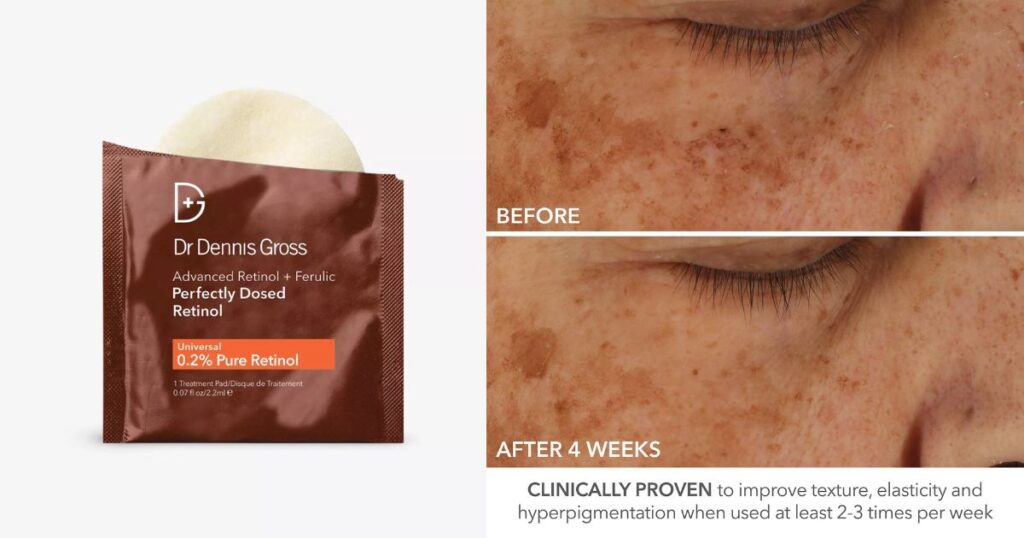
Dr. Dennis Gross Skincare’s Advanced Retinol + Ferulic Perfectly Dosed Retinol Universal 0.2% Pads, expertly formulated to help minimise the appearance of fine lines and uneven skin tone.
Each pad is drenched in a dermatologist-formulated powerhouse concentrate, packed with 0.2% pure liquid retinol, bakuchiol, and rambutan for maximum efficacy. Additionally, with a nourishing blend of squalane, hyaluronic acid, and soothing ferulic acid, skin is left hydrated and visibly balanced for smoother, brighter-looking skin.
111SKIN Celestial Black Eye Masks
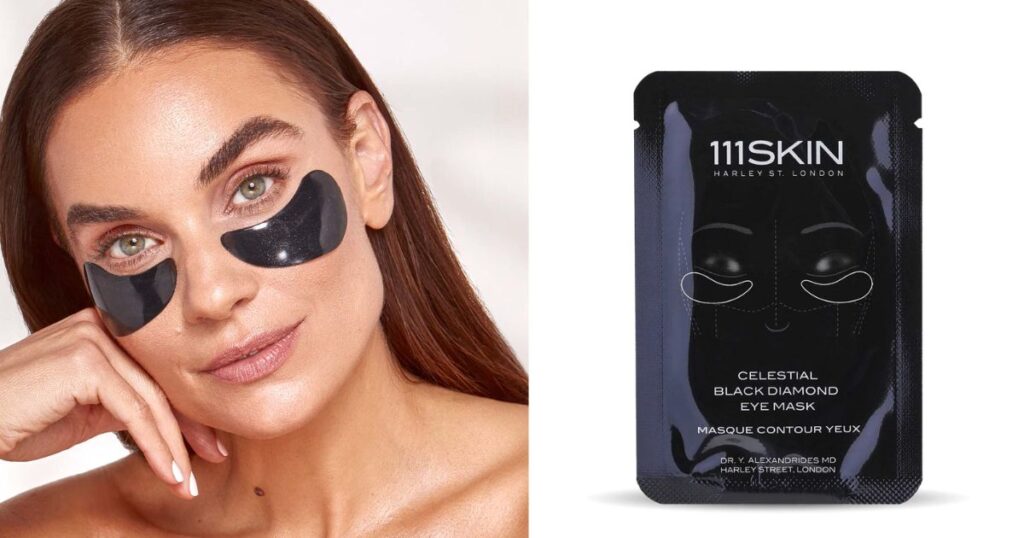
Created as a 20-minute treatment, 111SKIN’s Celestial Black Diamond Eye Mask delivers vitamins and peptides to delicate undereyes. Ideal for those prone to dryness and dark circles. A cocktail of retinol, niacinamide, and argireline seeks to retexturise skin, minimising the look of expression lines, crow’s feet, and uneven tone. Hyaluronic acid delivers plumping moisture, while rosehip extract, rich in vitamin C, offers brightening properties to promote a well-rested and luminous appearance.

